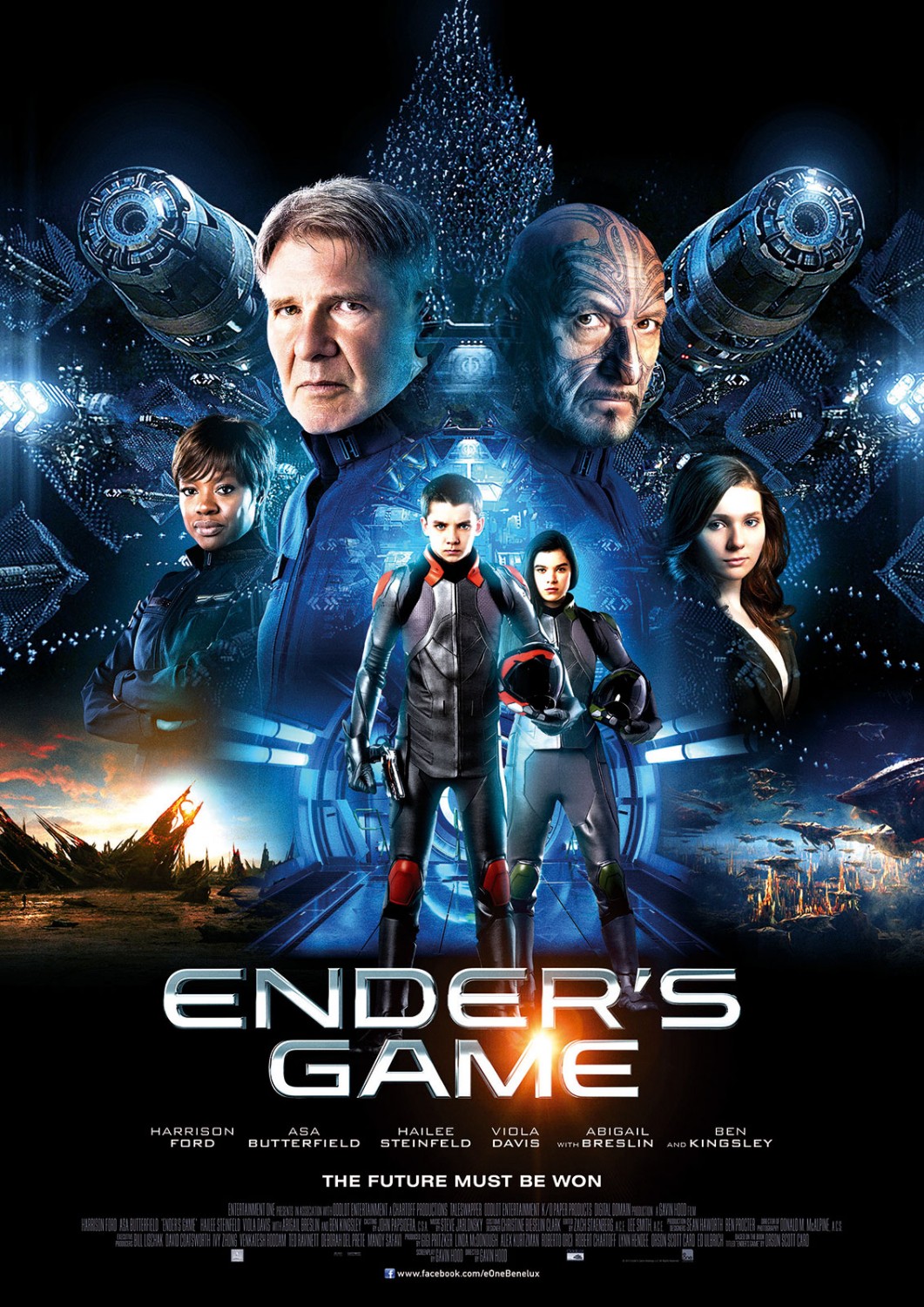Folks who want to boycott Ender’s Game because of author Orson Scott Card’s homophobic views can take comfort. If you want to see it despite that fact, Card is (reportedly) not making any back-end bonus based on ticket sales. If you didn’t want to see it anyway, frankly, you won’t be missing much.
Part anti-bullying parable, part (small part) interstellar battle, Ender’s Game relies too much on its visuals that the script and acting seem almost like an afterthought, and the movie suffers as a result.
Fifty years after aliens attacked Earth and almost destroyed it, the powers that be are ramping up for the return visit they’re sure will come any time. Their preparations involve training Earth’s best and brightest tweens to be the global fighting force, and among them is Ender (Asa Butterfield), a smart, logical kid who is portrayed as an outcast. Colonel Graff (Harrison Ford), though, sees promise in the boy’s demeanor and mentality, and he decides to groom him to eventually be commander of the Earth’s army.
The first part of the film feels a bit like the Parris Island part of Full Metal Jacket… if Full Metal Jacket starred 13-year-old kids and featured ham-fisted dialogue and acting. Most of the performances are nothing but grievous over-acting, particularly Moises Arias as the Ender’s bully nemesis and Nonso Anozie, who is unintentionally comical as the childrens’ drill sergeant. As with Full Metal Jacket, though, Ender’s Game becomes a whole different movie about half-way through, and it actually redeems itself a bit once the training stops and the final battle looms.
Director and screenwriter Gavin Hood (X-Men Origins: Wolverine) clearly worships at the altar of James Cameron, and, in fact, used Digital Domain (which Cameron founded) for the film’s visual effects. The result is often effective, particularly the zero gravity sequences, but there’s nothing here you haven’t already seen before; and Gravity does it a whole lot better.
Hood’s script, meanwhile, is often so melodramatic that you’ll be thankful you’re not playing a drinking game that requires you to take a sip every time a solitary tear trickles down the face of a sad boy or girl.
Butterfield, who was so brilliant in 2011’s Hugo, makes the most of what he’s given here, as does Ford. Viola Davis, Ben Kingsley, and Abigail Breslin are tragically underused, though, and what little screen time they’re given only leaves you wanting more.
There’s no doubt that this is only the first of many more Ender’s films to come (Card has written more than a dozen books that take place in this expanded universe), and time will tell if the filmmakers can correct the errors they made here. In the meantime, though, Ender’s Game is not much more than a decent amount of eye candy by way of an afterschool special.
2.5/5 stars
